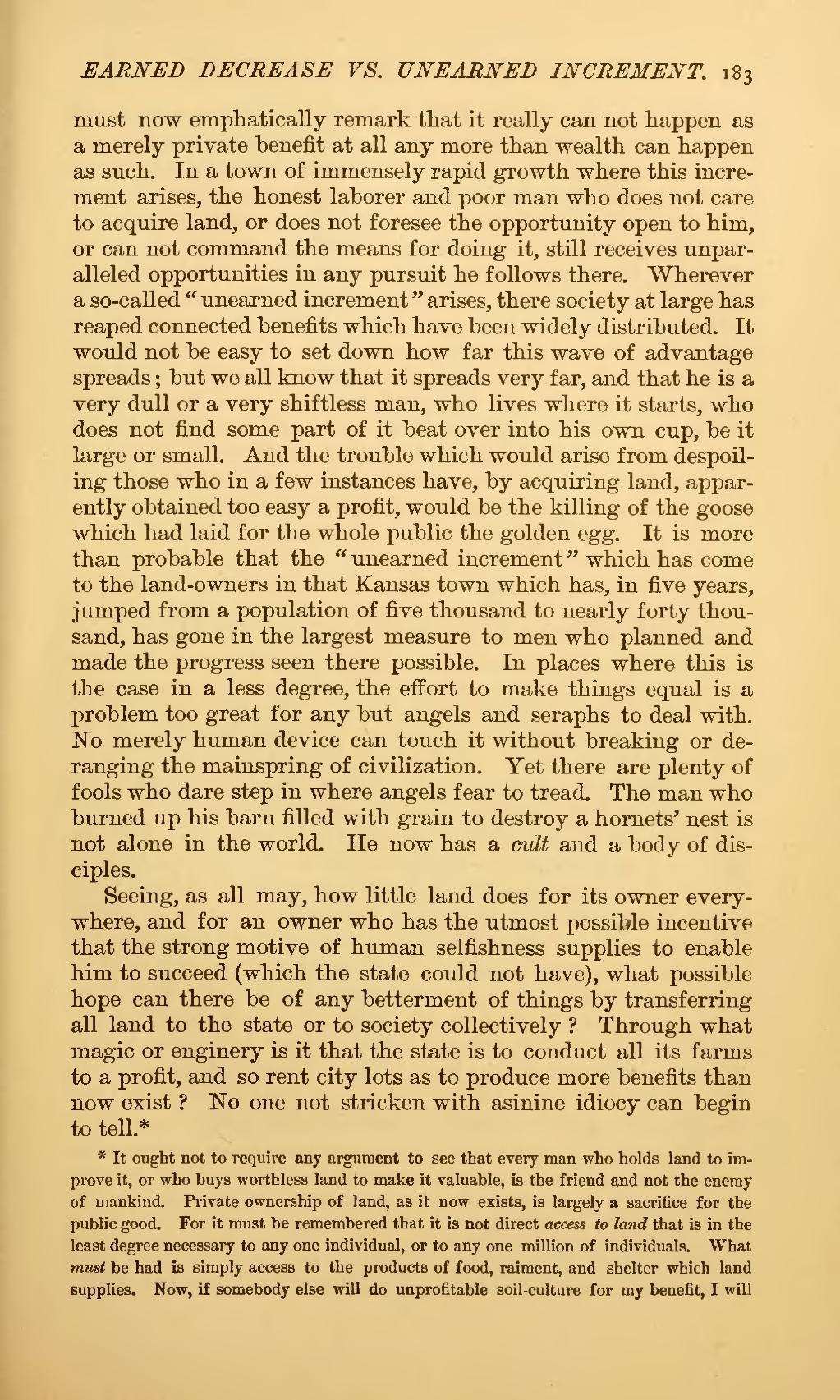must now emphatically remark that it really can not happen as a merely private benefit at all any more than wealth can happen as such. In a town of immensely rapid growth where this increment arises, the honest laborer and poor man who does not care to acquire land, or does not foresee the opportunity open to him, or can not command the means for doing it, still receives unparalleled opportunities in any pursuit he follows there. Wherever a so-called "unearned increment" arises, there society at large has reaped connected benefits which have been widely distributed. It would not be easy to set down how far this wave of advantage spreads; but we all know that it spreads very far, and that he is a very dull or a very shiftless man, who lives where it starts, who does not find some part of it beat over into his own cup, be it large or small. And the trouble which would arise from despoiling those who in a few instances have, by acquiring land, apparently obtained too easy a profit, would be the killing of the goose which had laid for the whole public the golden egg. It is more than probable that the "unearned increment" which has come to the land-owners in that Kansas town which has, in five years, jumped from a population of five thousand to nearly forty thousand, has gone in the largest measure to men who planned and made the progress seen there possible. In places where this is the case in a less degree, the effort to make things equal is a problem too great for any but angels and seraphs to deal with. No merely human device can touch it without breaking or deranging the mainspring of civilization. Yet there are plenty of fools who dare step in where angels fear to tread. The man who burned up his barn filled with grain to destroy a hornets' nest is not alone in the world. He now has a cult and a body of disciples.
Seeing, as all may, how little land does for its owner everywhere, and for an owner who has the utmost possible incentive that the strong motive of human selfishness supplies to enable him to succeed (which the state could not have), what possible hope can there be of any betterment of things by transferring all land to the state or to society collectively? Through what magic or enginery is it that the state is to conduct all its farms to a profit, and so rent city lots as to produce more benefits than now exist? No one not stricken with asinine idiocy can begin to tell.[1]
- ↑ It ought not to require any argument to see that every man who holds land to improve it, or who buys worthless land to make it valuable, is the friend and not the enemy of mankind. Private ownership of land, as it now exists, is largely a sacrifice for the public good. For it must be remembered that it is not direct access to land that is in the least degree necessary to any one individual, or to any one million of individuals. What must be had is simply access to the products of food, raiment, and shelter which land supplies. Now, if somebody else will do unprofitable soil-culture for my benefit, I will
